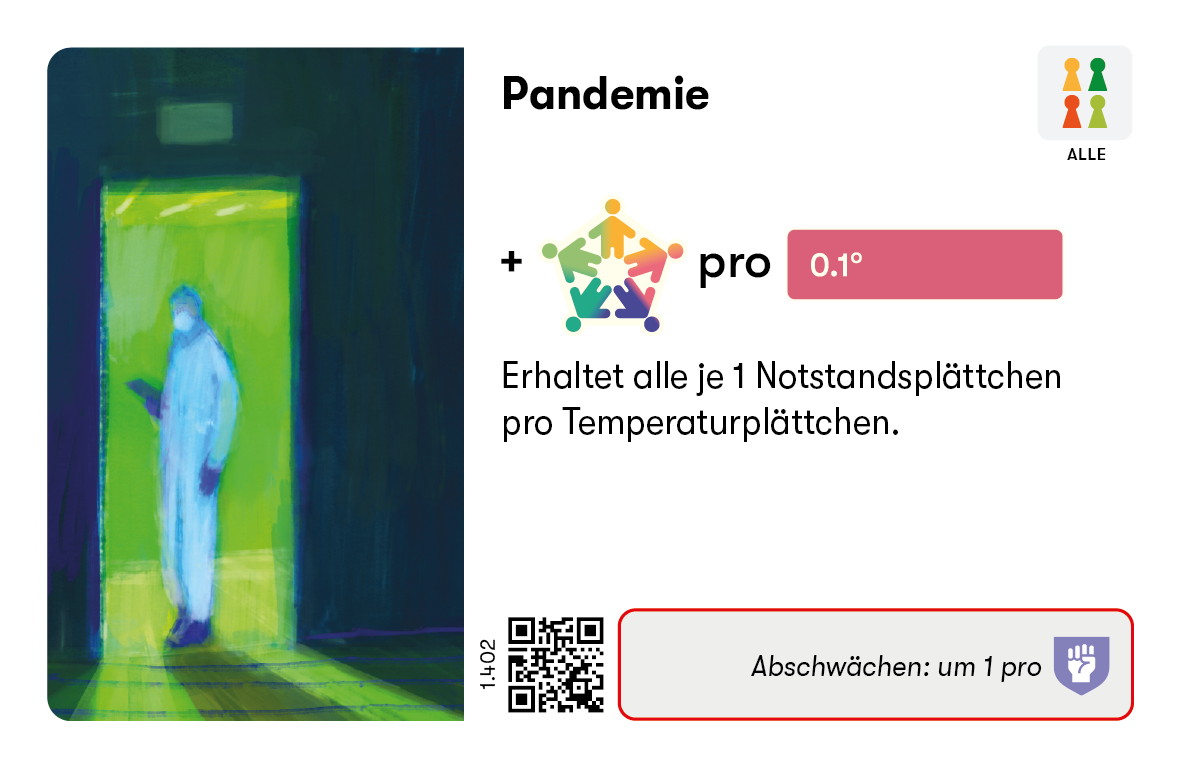Pandemie
Krisen
Eine Pandemie ist eine plötzliche Ausbreitung einer infektiösen Krankheit, an der eine große Anzahl Menschen in verschiedenen geographischen Regionen auf der Welt erkrankt.
Pandemien betreffen alle Menschen, die mit ihr in Kontakt kommen. Menschen, die in schlechten Wohnverhältnissen leben oder obdachlos sind, gesellschaftlich und wirtschaftlich benachteiligte Menschen und Menschen mit geringen Einkommen sind bei Pandemien besonders gefährdet, da sie oft näher bei anderen leben und nur unzureichenden Zugang zur Gesundheitsversorgung haben. Meist werden diese Gruppen auch auf andere Weise zum Beispiel aufgrund ihrer indigenen Herkunft unterdrückt oder leiden unter Diskriminierung aufgrund ihrer körperlichen Einschränkungen, ihres Geschlechts, ihrer sexuellen Orientierung oder ihrer ethnischen Zugehörigkeit.
Die Hauptursachen für den Klimawandel haben auch einen Einfluss auf Pandemien. So kann die Abholzung von Wäldern zum Anlegen großer Agrarflächen und zur Holzgewinnung dazu führen, dass Ökosysteme aus dem Gleichgewicht geraten und Tiere mit Krankheiten (wie Ratten, Flöhe und Moskitos) sich ausbreiten und Erreger in menschliche Siedlungsgebiete tragen. Extreme Wetterereignisse spielen auch eine Rolle bei der Ausbreitung von Seuchen, da Krankheitserreger unter warmen und feuchten Bedingungen länger überleben können.
Ist eine Pandemie erst einmal ausgebrochen, führen eine schlechte Gesundheits- und Wasserversorgung, sanitäre Probleme, Vertreibung und eine mangelnde Überwachung ebenfalls dazu, dass ihre Folgen noch schlimmer sind.
Wenn wir die Probleme angehen, die maßgeblich für den Klimawandel verantwortlich sind, können wir auch die Gefahr verringern, die von Pandemien ausgeht. Eine bessere Gesundheitsversorgung mit Impfstoffen, Zugang zu sauberem Wasser, Hygienemaßnahmen und eine effiziente epidemiologische Überwachung sind weitere Faktoren, die sich dabei positiv auswirken können.
Betrifft alle. Zählt die Temperaturplättchen auf dem Thermometer. Erhaltet alle je 1 Notstandsplättchen pro Temperaturplättchen und legt es in euren Notstandsbereich.
Jede Person, kann diesen Effekt für sich um 1 abschwächen, für jedes Gesellschaft-Stabilitätsplättchen auf dem eigenen Tableau.
Zum Beispiel: Es liegen 5 Temperaturplättchen und du hast 3 Gesellschaft-Stabilitätsplättchen. Du musst dann 2 Notstandsplättchen nehmen.
Wichtig: Die Stabilitätsplättchen werden nicht abgeworfen und bleiben auf deinem Tableau liegen.

Pandemic Hub (WHO)
Coronavirus and Climate Change (Harvard T.H. Chan School of Public Health)
Disease outbreaks more likely in deforestation areas (The Guardian)
Epidemics and pandemics (International Federation of Red Cross and Red Crescent Societies, IFRC)